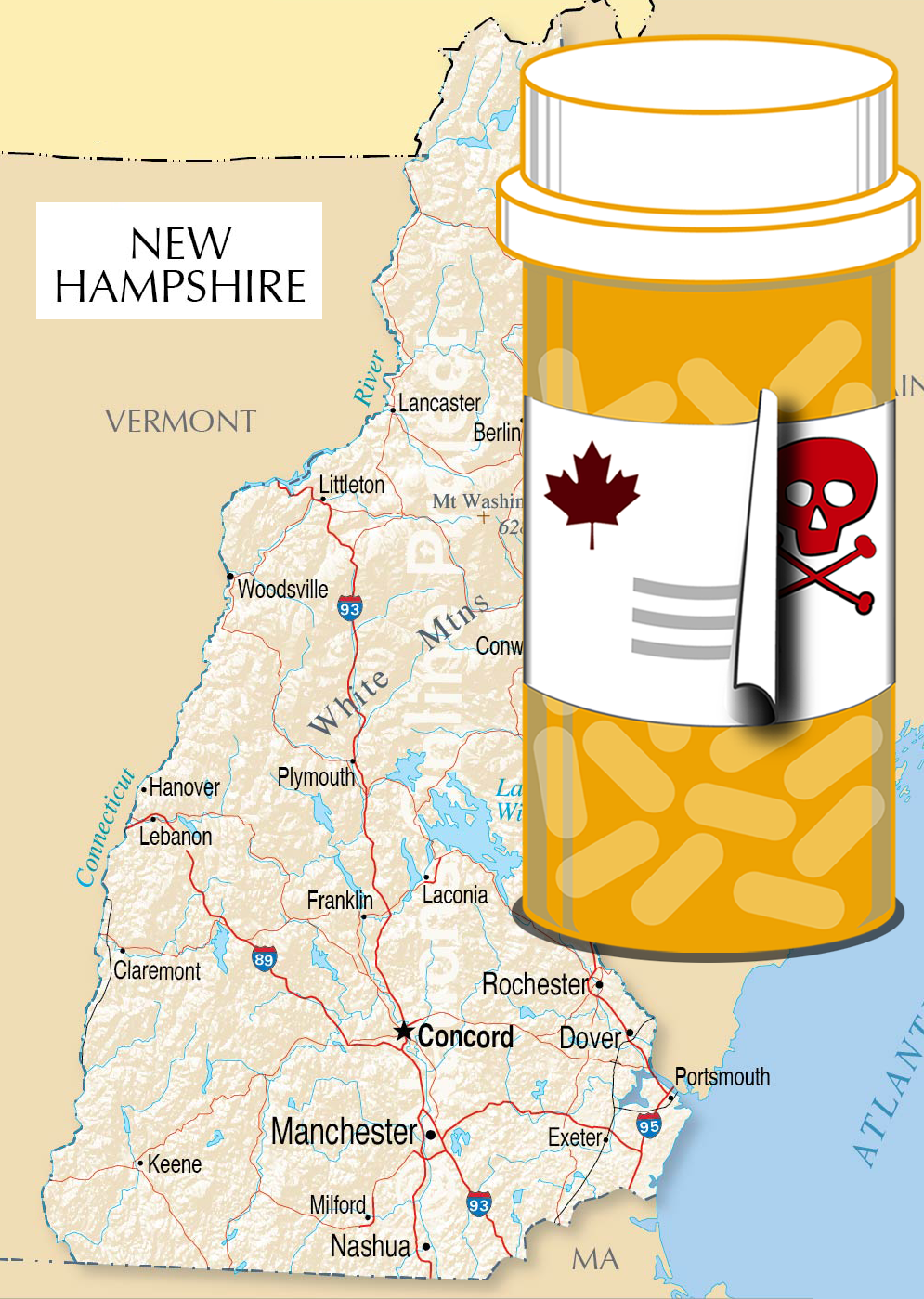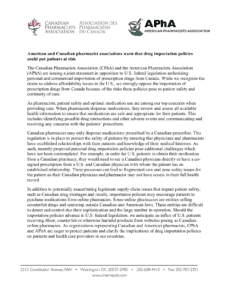Drug Importation in New Hampshire: An Overview

Current status:
New Hampshire submitted an application for its state importation program in April 2021. The FDA rejected the application in November 2022 because it did not identify a Canadian wholesaler that would provide the drugs.
Synopsis:
In January 2020, the New Hampshire legislature introduced SB685, which would require the New Hampshire Department of Health and Human Services to design a wholesale importation program for prescription drugs from Canada by or on behalf of the state and obtain federal approval for the program. In June 2020, SB685 was added to HB1280, which included several other prescription drug initiatives. The bill was signed into law in July 2020.
How should we evaluate this program?
The program hasn't started yet, or even been designed, so there's no way to measure whether it saved money or kept patients safe, both promises made at the time of passage. However, the 2003 Medicare Modernization Act contains requirements for safety requirements built into any such program.
Official actions and statements
November 2022: FDA denies the application.
April 2021: New Hampshire submits an SIP application.
HB1280: Text of the Bill
SB685: Text of the Bill | New Hampshire State Senate hearing
Testimony opposing SB685:
- The Best Medicines Coalition, January 21, 2020
- The Partnership for Safe Medicines, January 2020
Background / resources
Learn more about
Op-eds from the Experts
Counterfeits coming from Canada have been a big issue in the Sunshine State. The FDA has identified dozens of counterfeit drugs coming into Florida from foreign pharmacies.
“Several other states have attempted to legalize drug importation, but all have failed to show that it’s safe or saves money. The federal government has determined multiple times that drug importation can’t be done safely. I hope, for the sake of Floridians, that state policymakers come to that same conclusion.”
In this editorial, published in The Missouri Times on March 11, 2019, Gregg Keller warns that “the issue at hand is not so much the safety of Canadian drugs but the dangers of the global drug trade. Often, pharmacies that claim to be “Canadian” are anything but.”
In this March 5, 2019 editorial, published on the National Association of Manufacturers blog, Robyn Boerstling, the organization’s Vice President of Infrastructure, Innovation and Human Resources Policy, raises concerns about Florida’s drug importation proposal.
It isn’t just policymakers who believe drug importation will open the U.S. drug supply to counterfeits. In this editorial, published in the Times of Northwest Indiana on March 6, 2019, HIV-positive advocate Brandon Macsata explains that his own physician objected to ordering medicine from Canadian online pharmacies:
“It never crossed my mind that I might have been taking counterfeit medicine, or that the medicines meant to control my HIV could be compromising my immune system. So when my doctor found out, she told me to stop immediately. She warned me that online pharmacies often sell counterfeit drugs.”
The Canadian Pharmacists Association (CPhA) and the American Pharmacists Association (APhA) have issued a joint statement in opposition to U.S. federal legislation authorizing personal and commercial importation of prescription drugs from Canada.
“While we recognize the desire to address affordability issues in the U.S.,” they write, “we strongly oppose the importation of prescription drugs from Canada because of the risks these policies pose to patient safety and
continuity of care.”
In this
In this February 4th, 2019 editorial for Colorado Politics, Denver resident Ali Schroer warns, “I experienced firsthand the dangers of counterfeit, imported drugs, and was critically ill for months as we sought to uncover the source of my illness.”
In this editorial, which first appeared in The Washington Times on January 29, 2019, former FBI Director Louis J. Freeh revisits the problem drug importation poses to law enforcement and regulatory systems already overburdened by the opioid crisis.
In this January 30, 2019 editorial, which was published in the National Association of Manufacturer’s Shopfloor blog, Vice President of Infrastructure Robyn Boerstling warns that even though legislators have good intentions, importation could “result in disastrous outcomes.”







